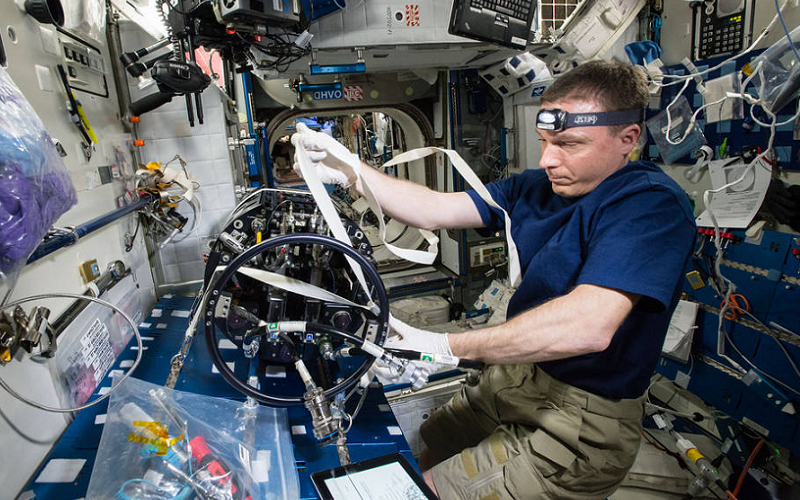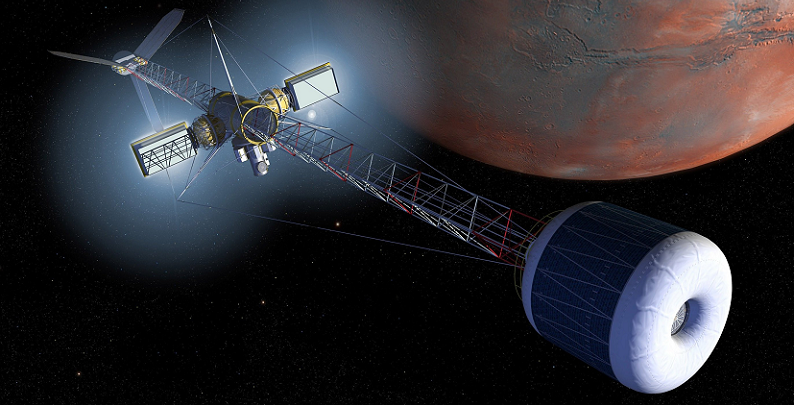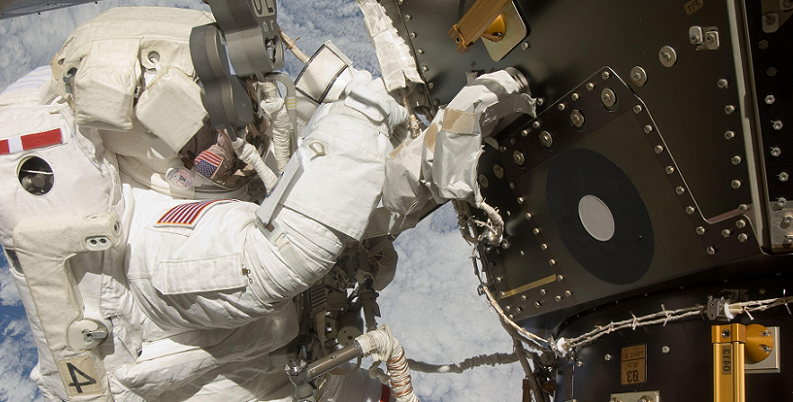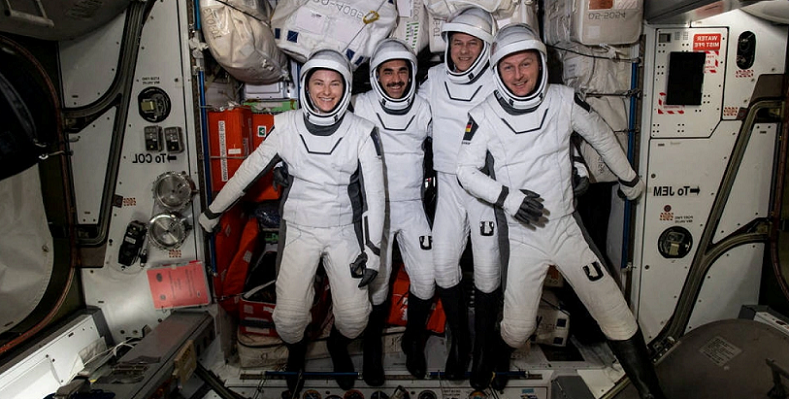
In a realm that lies beyond the reach of our immediate experience, space continues to captivate our collective curiosity. While human exploration of space has revealed much about our celestial surroundings, it has also led us to further probe the resilience of our own minds and bodies in these extreme environments.
In the vast void of space, human cognition — our ability to think, understand, learn, and remember — is put to the ultimate test. This becomes particularly important in the context of long-duration space travel, such as trips to Mars or extended stays on the International Space Station, where astronauts are subjected to unique physical and psychological challenges. But what do we really know about how these prolonged missions in outer space impact cognitive functioning?
Contents
Introduction to Space Travel
From the dawn of human history, the enigma of outer space has continually piqued our curiosity. The glimmering stars, radiant moon, and the radiant sun have driven countless individuals to ponder, study, and eventually journey into this cosmic frontier.
With time, space exploration has evolved from a dream into reality, propelled by remarkable advancements in science and technology. Yet, as we delve further into the cosmos, we also delve deeper into ourselves — probing the resilience and adaptability of the human mind and body in these unparalleled environments.
Space travel, in its simplest definition, refers to the process of travelling beyond Earth’s atmosphere using various types of spacecraft. This may involve orbital flights around the Earth, journeys to other celestial bodies, or even just brief sojourns into the sub-orbital space for research or tourism purposes. The duration of space missions can vary greatly — from mere minutes to many months or even years.
What makes space travel uniquely challenging is the extreme environment astronauts are subjected to. Space is a vacuum, absent of air and atmospheric pressure, and filled with microgravity and cosmic radiation — factors that can significantly affect the human body in myriad ways. Cognitive functioning, the focus of this post, is one such area of impact.
Understanding the effects of long-duration space travel on cognitive functioning isn’t just academically intriguing — it’s essential. As humankind stands on the precipice of an era of extended interplanetary missions, comprehending and preparing for these cognitive impacts is crucial to ensure the safety and success of future space explorers. Thus, this journey into the cognitive cosmos isn’t just about understanding our brains; it’s about safeguarding our future in space.

Understanding the Basics: Cognitive Functioning
Before we embark on our exploration of how long-duration space travel impacts cognition, it is vital to first establish a fundamental understanding of what cognitive functioning entails. Human cognition is an intricate blend of various mental processes that enables us to perceive, learn, remember, and interact with the world around us.
Overview of Cognitive Functions
Cognitive functions are the brain-based skills we need to carry out any task from the simplest to the most complex. They encompass a wide array of capabilities, including attention, perception, memory, motor skills, language, visual and spatial processing, and executive functions [1].
- Attention: The ability to focus on specific stimuli or tasks while ignoring distractions.
- Perception: The process of interpreting the sensory information we receive from our environment.
- Memory: The capacity to store, retain, and recall information and experiences.
- Motor Skills: The ability to execute movements with precision.
- Language: The comprehension and formulation of spoken and written communication.
- Visual and Spatial Processing: The ability to understand and remember the spatial relations among objects.
- Executive Functions: Higher-level cognitive processes that enable us to plan, solve problems, make decisions, and regulate behavior.
Importance of Cognitive Functioning for Astronauts
In the context of space travel, cognitive functioning takes on an elevated level of importance. Astronauts need to maintain a high level of cognitive performance to ensure the success of their missions and their own safety. Whether it’s maneuvering spacecraft, conducting scientific experiments, or troubleshooting technical issues, these tasks require sharp attention, precise motor control, quick problem-solving, and effective decision-making skills.
Moreover, long-duration space travel poses unique cognitive challenges. The isolated and confined environment, coupled with the physical stresses of space, can potentially lead to cognitive fatigue and declines in performance over time. It is also crucial to remember that in space, even minor errors or oversights can have severe consequences, amplifying the importance of sustained cognitive health. This makes understanding the cognitive impacts of long-duration space travel not only a fascinating research question, but a critical component of mission success and astronaut well-being [2].

Long-Duration Space Travel: A Definition
To truly comprehend the cognitive impacts of extended space voyages, it’s imperative to first define what constitutes “long-duration” space travel. There’s no universally agreed-upon timeframe that categorizes a space mission as “long-duration”. However, the term is often applied to missions lasting several months to years.
Criteria for Long-Duration Space Travel
In the context of this article, long-duration space travel refers to missions that extend beyond six months. This timeframe is not arbitrary; it’s closely aligned with the typical length of astronaut stays on the International Space Station (ISS). These missions usually range from six months to a year—long enough to allow meaningful physiological changes and adaptations to the space environment.
Long-duration space missions are characterized by extended exposure to microgravity and higher levels of cosmic radiation, as well as isolation, confinement, and a relative monotony of daily activities. These factors present unique challenges to the human mind and body, and they are believed to contribute to potential changes in cognitive functioning over time [3].
Current Records and Examples of Long-Duration Space Missions
Throughout the history of space travel, there have been several noteworthy examples of long-duration missions. Here are a couple.
International Space Station (ISS) Expeditions
Since the turn of the century, the ISS has been home to astronauts for missions typically lasting about six months. Some astronauts, however, have spent considerably longer on board. One notable example is former NASA astronaut Scott Kelly, who spent nearly a year (340 days) on the ISS for the groundbreaking “One-Year Mission” in 2015-2016.
Mir Space Station
Before the ISS, the Soviet/Russian Mir Space Station hosted numerous long-duration missions. The record for the longest single stay in space is held by Russian cosmonaut Valeri Polyakov, who spent more than 14 months (437 days) aboard Mir from 1994 to 1995 [4].
The experiences and data gathered from these long-duration missions provide invaluable insights into how extended stays in space can affect various aspects of human health, including cognitive functioning.

The Cognitive Impacts of Microgravity
One of the defining features of space travel is the exposure to a microgravity environment. Microgravity, as the name suggests, refers to conditions where the force of gravity is not completely zero, but is much weaker than what we experience on Earth. The human brain, which evolved in the constant presence of Earth’s gravity, is unaccustomed to such conditions. As a result, microgravity can have several effects on brain structure and function, some of which may have implications for cognitive functioning.
Explanation of Microgravity
In space, the gravitational force is not entirely absent but is drastically reduced—hence the term ‘microgravity’. This is due to the fact that objects in orbit, including astronauts aboard a spacecraft, are in a state of continuous free-fall toward Earth. However, because they’re moving forward at a high speed, they keep missing it, creating a sensation of weightlessness. This unique condition is markedly different from the gravitational environment on Earth that humans have adapted to over millions of years of evolution.
How Microgravity Affects Brain Structure
Research indicates that microgravity can cause significant changes in the human brain’s structure. Neuroimaging studies on astronauts before and after spaceflight have revealed alterations in brain volume, white matter integrity, and functional connectivity.
One of the key findings is that microgravity leads to a shift of brain tissue upward towards the top of the skull—a phenomenon known as “brain shift.” This could potentially compress and impact the function of certain brain regions, including those involved in cognition [5].
Additionally, there are changes in the distribution of cerebrospinal fluid, which might affect intracranial pressure and, consequently, brain function. These structural changes could, theoretically, have implications for cognitive processes, although the precise effects are still under investigation.
Studies on Cognitive Changes in Microgravity
Studies investigating the cognitive impacts of microgravity have yielded mixed results. Some astronauts have reported changes in their perception, attention, and spatial orientation during spaceflight, but these experiences are highly subjective and can vary between individuals.
Objective cognitive assessments conducted during space missions have shown minor decreases in certain cognitive domains, such as attention, psychomotor speed, and spatial memory. However, these changes are typically subtle and do not affect the overall cognitive performance or mission success. Still, given the high-stakes environment of space travel, even minor changes in cognition could potentially have significant consequences.
The Role of Cosmic Radiation in Cognitive Function
In addition to microgravity, space travelers are exposed to another unique environmental factor: cosmic radiation. This form of radiation comes from the sun and other celestial bodies, and it is significantly more intense in space than on Earth due to the lack of a protective atmospheric layer. There is growing concern that exposure to cosmic radiation might have potential implications for cognitive function in astronauts.
Understanding Cosmic Radiation
Cosmic radiation, or cosmic rays, are high-energy particles originating from the sun (solar cosmic radiation) and beyond our solar system (galactic cosmic radiation). These particles are primarily protons, but they also include heavier nuclei and their secondary products, created when these particles interact with spacecraft or the human body.
On Earth, we’re protected from a large part of this radiation by the planet’s magnetic field and atmosphere. However, in space, astronauts are exposed to much higher levels of cosmic radiation, which can penetrate and damage living cells—a concern for long-duration space travel.
Research on Cosmic Radiation’s Impact on the Brain
While much is still unknown about cosmic radiation’s effects on the human body, recent studies have suggested that it might have deleterious effects on the nervous system, a phenomenon known as “space radiation-induced neurocognitive decline”.
Preclinical studies using animal models have shown that exposure to simulated cosmic radiation can lead to neuroinflammation and alterations in neuronal structure and function. These changes have been associated with impairments in memory, learning, and other cognitive domains [6].
Moreover, cosmic radiation has been hypothesized to contribute to the development of neurodegenerative disorders, although the evidence remains largely experimental.
Risks Associated with Cosmic Radiation
Given the potential neurocognitive effects, cosmic radiation exposure is a significant concern for long-duration space missions, particularly those beyond low Earth orbit, such as a mission to Mars. In these missions, astronauts would be exposed to cosmic radiation levels considerably higher than those experienced on the International Space Station, further increasing the potential risk of cognitive impairment.
It’s important to note that current research is still in its early stages, and most studies have relied on animal models or in vitro systems. The actual cognitive impact of cosmic radiation in astronauts during long-duration space travel is yet to be fully elucidated. As we plan for more ambitious space explorations, understanding and mitigating these potential cognitive risks will be of paramount importance.
Psychological and Social Factors in Long-Duration Space Travel
Beyond the physical factors like microgravity and cosmic radiation, long-duration space travel also involves psychological and social challenges. Living in a confined spacecraft, far from home, isolated from the rest of humanity, and working in a small team under stressful conditions can significantly impact the psychological well-being and cognitive functioning of astronauts.
Psychological Stressors in Space
Long-duration space travel involves a number of psychological stressors that can potentially influence cognitive performance. The lack of privacy, constant vigilance required for safety procedures, and the monotonous environment can lead to stress and fatigue over time.
Moreover, the isolation from family and friends, coupled with the impossibility of immediate rescue or return in case of emergencies, can contribute to feelings of anxiety and depression. Additionally, disruptions in sleep due to the spacecraft environment and irregular light-dark cycles may also impair cognitive performance and emotional well-being.
Social Dynamics in Space
The social dynamics within a spacecraft can significantly affect an astronaut’s cognitive and emotional state. Working in a confined space with a small crew requires effective communication, collaboration, and conflict resolution skills.
On long-duration missions, team cohesion can be tested as minor disagreements or personality clashes can potentially escalate over time, potentially leading to tension, decreased morale, and impaired team performance. The ability to maintain positive social interactions is thus crucial for both mission success and the psychological well-being of the crew.
The Concept of ‘Earth Out of View’ Syndrome
A unique psychological challenge associated with deep space exploration, such as a mission to Mars, is the ‘Earth out of view’ syndrome. This term refers to the potential psychological and cognitive effects of losing sight of Earth—a constant, reassuring presence during low Earth orbit missions. The feeling of being profoundly distanced from one’s home planet might lead to a sense of isolation and vulnerability, potentially impacting mental health and cognitive functioning.
Coping Mechanisms and Support Systems
To help astronauts cope with these psychological and social challenges, space agencies have implemented several support systems. These include regular communication with family and friends, psychological support from professionals, and recreational activities to help astronauts relax and maintain their mental health.
For future long-duration missions, further development and implementation of coping strategies and psychological support systems will be essential. Ensuring the cognitive well-being of astronauts is just as critical as looking after their physical health in the unique environment of space.
References
[1] Space Station 20th: Long-duration Missions
[2] Study of the impact of long-duration space missions at the International Space Station
[3] The Effects of Long Duration Spaceflight on Sensorimotor Control and Cognition
[4] Studying Long-Duration Human Spaceflight
[5]
Human Factors in Long-Duration Spaceflight
[6] New study reveals the effect of extended space flight on astronauts’ brains
